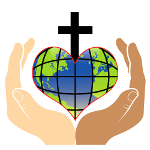

Many of the faith lessons in the Bible take place in the Middle East desert. God lead His people into areas where they had to trust Him to provide for all their needs. How often does God do the same for us? He allows the challenges of illness or injury to enter our lives. He leads us into “desert places” where we become exhausted, hot and just tired of the struggle. But God also provides “shade” for us ̶ places for us to “cool off.” As we in the northern hemisphere enter the summer months, this imagery reminded me of the serious condition of heat exhaustion.
Heat exhaustion and heat-related illnesses occur when the body can’t keep itself cool. As the temperature rises, the body cools itself through sweat evaporation. On hot, humid days the evaporation of sweat is slowed by the increased moisture in the air. When sweating isn’t enough to cool the body, high body temperature can cause serious changes to occur, followed by dehydration and illness.
Heat exhaustion is when the body becomes too hot. The signs and symptoms are heavy sweating, feeling weak or confused, dizziness, nausea, headache, fast heartbeat, and dark-colored urine which indicates dehydration.
If one thinks he or she is experiencing heat exhaustion, getting out of the heat as quickly as possible is very important. Finding a cool, shady place is necessary if unable to get into a building that has air conditioning. Drinking plenty of water or other fluids is essential. Don’t drink alcohol or caffeinated carbonated drinks such as sodas! These beverages can worsen the heat exhaustion. Removing any tight fitting or unnecessary clothing will be helpful. Taking a cool shower or bath, or applying cool water to skin will be helpful, as will applying cool cloths to the head and neck to help decrease body temperature. If a decrease in body temperature has not occurred within 30 minutes, it is very important to seek medical attention. Heat exhaustion can progress to heatstroke.
Some medications can increase the sensitivity to heat-related conditions. Groups of medications that affect how the body reacts to heat include antihistamines, beta-blockers and vasoconstrictors, diet pills, antidepressants and antipsychotics, anticonvulsants, diuretics, as well as many illegal drugs.
When one needs to be outside on a hot day, taking measures of protection such as the following are important.
Wear loose-fitting, lightweight, light-colored clothing.
Cover the head with a hat or umbrella.
Drink plenty of fluids. Some sports drinks replenish salt lost through sweating.
Avoid being out during the hottest time of the day ̶ between 10 am and 6 pm.
Take frequent breaks and drink, even if not thirsty.
If one has medical conditions, talking with a healthcare provider about specific medications can be very helpful.
Carol D. Zimmermann, MS, RN, Parish Nurse, Lutheran Church of the Living Christ
Madison, WI 53715 USA
czpeople@gmail.com
Information for this article was compiled from FamilyDoctor.org and may be used by parish nurses in their ministries.